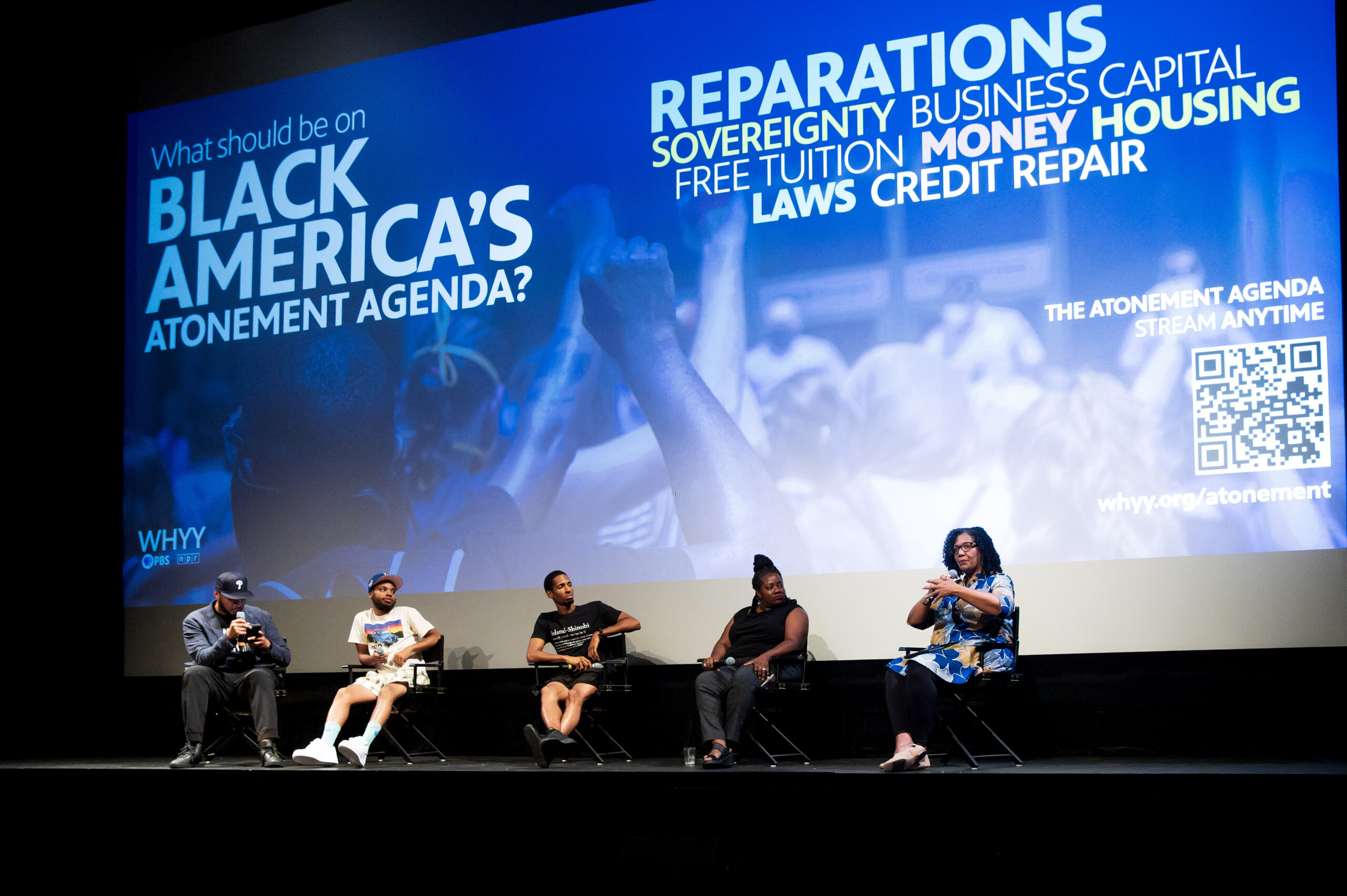On July 12th, WHYY brought the special “The Atonement Agenda” to the Philadelphia Film Society to explore the topic of reparations. During the screening, plans and concepts for reparations that could increase access to housing, education and business capital thus seeking to repair the Black lives and communities devastated by slavery, Jim Crow, and other forms of systemic racism were discussed as Christopher “Flood the Drummer” Norris hosted a conversation with panelists. Those panelists were:
– Lisa Sharon Harper, author, Fortune: How Race Broke My Family and The World and How to Repair it All.
– Rev. Naomi Washington-Leapheart, Director, Mayor’s Office of Faith Based Initiatives.
– Khaleef Alexander, co-founder, Millennial Juneteenth.
– Rashaun Williams, co-chair, N’Cobra, Phila chapter.
Sharing thoughts and knowledge on reparations and restorative justice, the panel of guests discussed Philadelphia’s un-enforced Slavery Disclosure Ordinance, reparations task forces established throughout the United States, United Nation’s standards of redress and most importantly that the root word of reparations means repair. That means more than giving money or funds to an injured party as a way to make amends, but changing systems and structures to support the upward mobility, rehabilitation, and holistic and healthy living of a people. For Black Americans who have been negatively impacted by the crimes committed against their humanity since the era of slavery, through Jim Crow and into today, this is especially true.
Reparations task forces are being established across the United States to study how the crimes and injuries committed against the humanity of Black Americans can be addressed and atoned for. Researching the practices and policies that have restricted the economic mobility and wealth accumulation of Black Americans must be a part of that work. That research includes reviewing the inputs, outputs, outcomes, and impacts of various slavery disclosure laws, reparations task forces, and commissions for Black / African-Americans. It also includes working alongside researchers and historians who may contribute to the accurate disclosure of these truths and impact public policy, and community organizations, social service institutions and professionals already in the field.
This may be why philanthropists and grantmakers are also supporting reparations through donations and charitable financial contributions to Black-led community repair programs. The “reparative capital” they provide can help to study how Black Americans have been targeted and exploited through redlining, mortgages, gentrification, business and personal loans, housing programs, environmental racism and brown zones, private prison funding, inadequate funding for public school education, exclusion from and exploitation in post-secondary education programming, and much more. The reparative capital they provide can also be matched by businesses, governments, churches, colleges and universities, and financial institutions; and should as many of these entities have directly participated in slavery and committing crimes against the humanity of Black Americans.
Organizations entering the reparations space without regard for grassroots community engagement and relationships built with every day Black Americans must know that true reparations and restorative justice is led by the community in need of repair in order to positively impact the reparations movement. Together, these reparations stakeholders can provide grants, scholarships, low interest business loans, charity, reentry and rehabilitation, insurance policies and pensions, loan forgiveness and debt restructuring, and direct recompenses. These reparations stakeholders can support researchers and historians who contribute to public policy, and the social service organizations and professionals already in the field to advance what is already working. These reparations stakeholders can listen and be led to fund systems change, and support the upward mobility, rehabilitation, and holistic and healthy living of Black America through the lens and leadership of Black America. Black Americans need to lead Black America.
– Rashaun Williams
